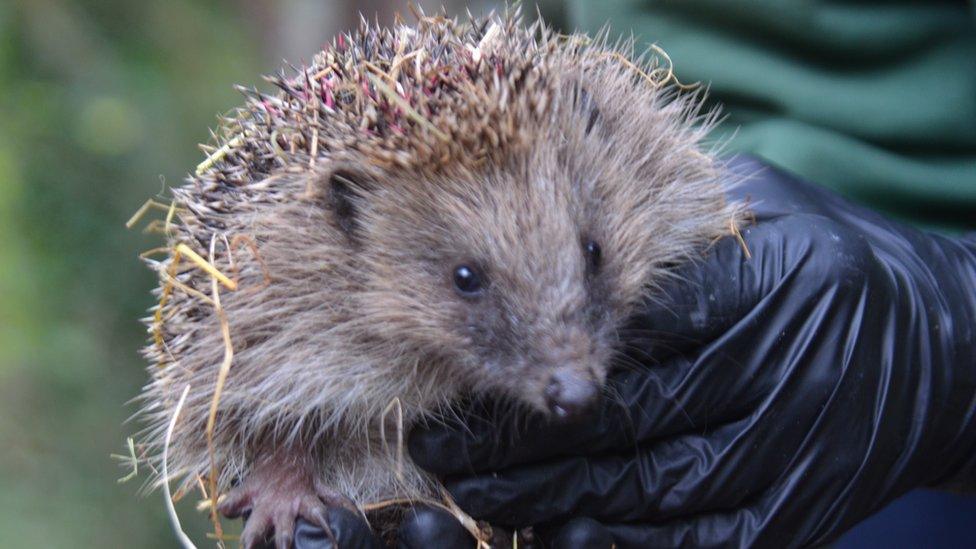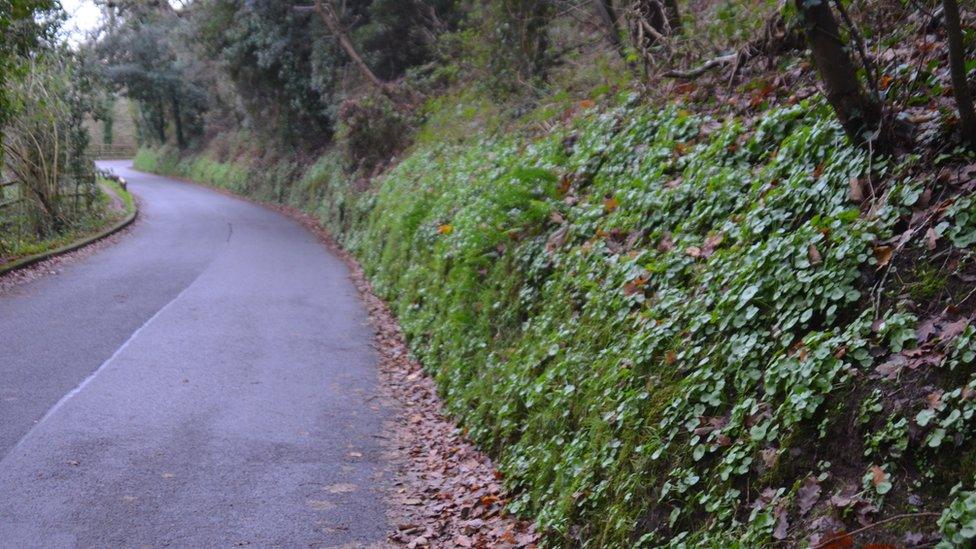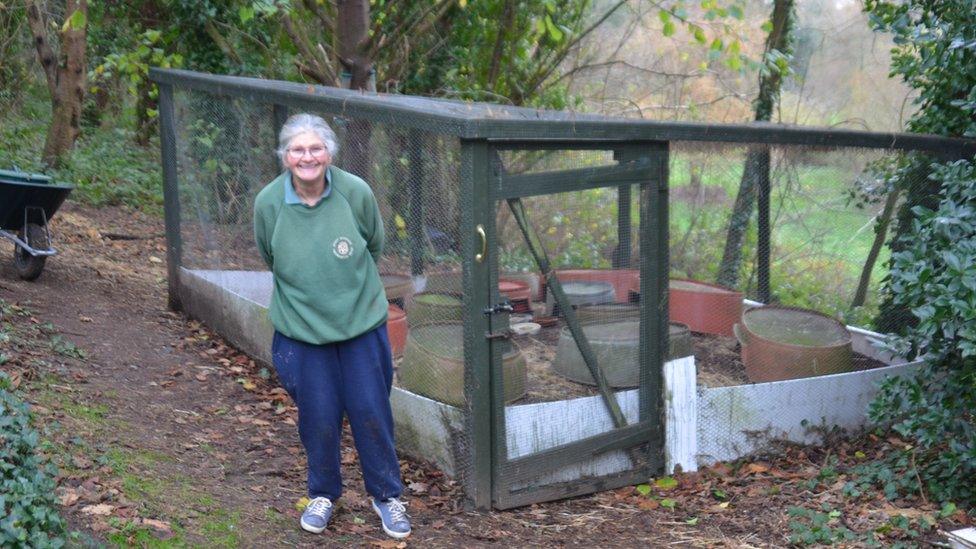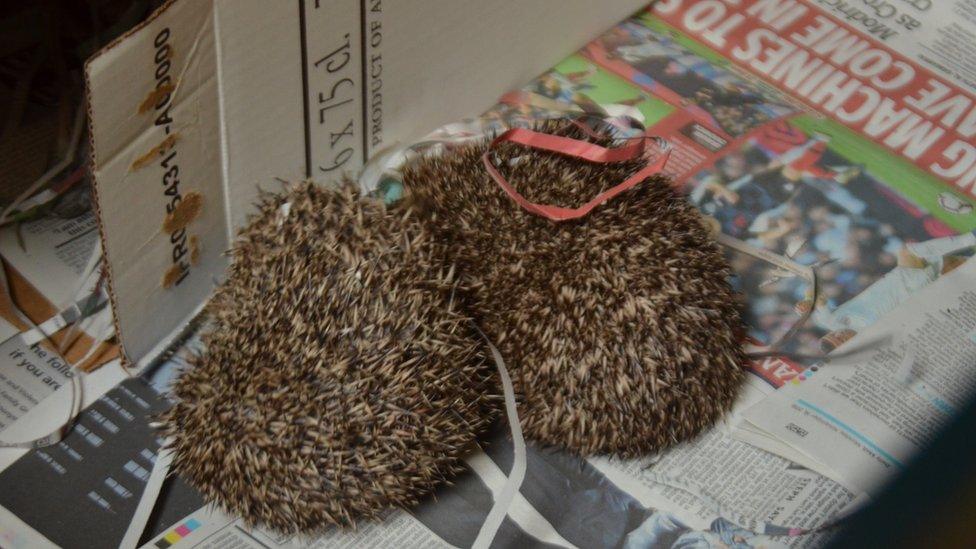Century old Jersey laws 'devastating' biodiversity
- Published

A hedgehog group in Jersey says a fall in summer offspring may have been caused by people using strimmers on hedges
A spate of wildlife deaths and damage to hedgerows in Jersey has prompted calls for century old laws to change.
Branchage, the law to keep roads clear of vegetation, is causing "serious damage" to biodiversity, campaigners say.
Each of the island's parishes is inspected twice a year and landowners face fines if they do not trim plants back.
Politicians are due to meet in early 2019 to discuss changing the tradition.
Bob Thompkins from the National Trust for Jersey, one of a number of conservation and heritage groups to propose the reforms, said the use of machines to clear areas quickly was "devastating".
He said the hedges were home to many plants, birds, insects and animals and need time to recover over the year.
"We are losing species now. If you look around the average hedge in the springtime there's very little diversity."

What is Branchage?

Campaigners want fewer cuttings in Jersey and better guidelines for land owners taking part
The term "branchage" is a Jersey French word which comes from "la branque", meaning "the branch"
The Branchage Law, external was introduced in 1914 and stipulates every July and September parish constables inspect public roads to make sure trees and hedges have been cut back
There must be 12ft (3.6m) between overhanging branches and roads, and 8ft (2.4m) between branches and footpaths
Landowners who fail to do so can be charged with a criminal offence and fined up to £200


Dru Burdon brought about 30 hedgehogs to her sanctuary in July, but many others had to be put down
Dru Burdon, Secretary of Jersey's Hedgehog Preservation Group, said the amount of injured animals she saw after July's branchage made her "very very angry".
"People were coming along with their strimmers, cutting the long grass and cutting the hedgehogs noses," she said.
"Once a hedgehog has its nose chopped, most of the time it has to be put to sleep because vets can't fix it."

As the number of hedgehogs to be put down rose, Ms Burdon said collecting them made her feel like she was driving "a hearse" at times
Deputy Gregory Guida, Assistant Minister for the Environment, said a "cultural change" was needed, rather than changes to law.
"We've not got a habit... before the inspections of 'let's take the flails and raise everything to the ground' to give us very neat hedges and open roads, but this isn't good for the biodiversity of the banks," he said.
Mr Guida said the idea of dropping branchage fines for a short time while the parishes "raise awareness" of biodiversity had been suggested to parish constables.
Constables are due to discuss the issue at a meeting in January.
- Published29 September 2014

- Published30 June 2014
